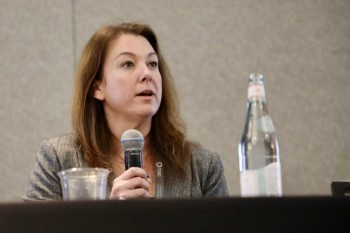Day three of RTIME started off with educational sessions on topics like cybersecurity, regulatory issues, navigating construction challenges and the future of the Universal Service Fund (USF).
USF remains top of mind for NTCA and its members, and the panel dove into the current state of the fund and court cases challenging the contribution system, the importance of ensuring the fund is sustainable and what to expect from the FCC going forward.
“I think, as an industry right now, we really do need to go out and educate everyone in our universe and get back to some of the basics,” said Roger Nishi, vice president of industry relations at Waitsfield and Champlain Valley Telecom (Waitsfield, Vt.). “I don’t believe [the USF has] ever been broken. It’s done what it’s intended to do. It’s helped fulfill robust rural networks in very high-cost rural areas.”
NTCA recently launched the Broadband Built to Last advocacy campaign in November, which looks to engage small, community-based broadband providers, their employees and communities, policymakers and industry leaders in conversations on the importance of the USF to getting and keeping rural consumers connected to high quality, affordable services. Members can also download and use the shareable graphics and messages on social media and in customer newsletters.
At the Women in Telecom session in the afternoon, NTCA CEO Shirley Bloomfield convened a panel of industry leaders who have worked to encourage more women to pursue careers in the broadband industry.
Panelists from JSI (Greenbelt, Md.) and Big Bend Telephone Company (Alpine, Texas) discussed how they have fostered a supportive and inclusive environment for employees and stressed the importance of men actively advocating for their colleagues.
“I know I want my company to be a place my daughters would want to work,” said Steve Meltzer, president of JSI .
Lauren Sanders, chief financial officer at Big Bend Telephone Company, also stressed the importance of women advocating for each other.
“As females, when you’re in a leadership role, it’s also our responsibility to help women in lower positions come up and foster those relationships and mentor them and bring them around and make sure they’re also seen and heard,” she said.
For more information on the Women in Telecom program, visit the WIT website.



